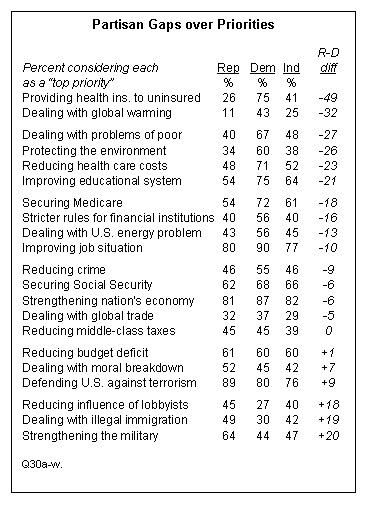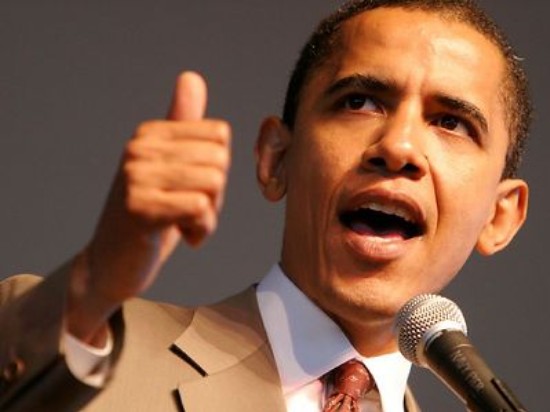
This week is a busy travel week, but I’m thankfully staying put. Particularly in light of the media firestorm and passenger reactions over TSA’s full-body scanners and pat down procedures. The centrepiece of all of this is the “don’t touch my junk” meme::
Last year, I blogged about Jeffrey Goldberg going after TSA’s policies, dubbing them security theatre. He wrote an article in The Atlantic about how he snuck contraband on flights, going on The Colbert Report showing what he was able to sneak through en route to the taping.
The problem with security theatre is that it might make passengers feel safer, but it does little to thwart terrorism. Take the liquids ban for example. If liquids are found by TSA screening, which isn’t a 100% probability, it’s just pitched into a pile that goes into a landfill. None of the liquids are tested before the flight, so there’s no way to know if there was a real threat. What does this tell terrorists? It’s a numbers game. Getting caught and the discovery of an actual terror plot is a matter of probability.
It’s not feasible to test all liquids, but it insults the intelligence of passengers to think that security measures are effective. Plus, security is only as good as the weakest link in the security chain. If a passenger clears security in Amsterdam and if they’re on a suspected terrorist list and this isn’t communicated between airports and security agencies, that’s a gaping hole in security.
Another issue is security with respect to cargo and freight. Also of note is that the recent package threat from Yemen wasn’t found by chance, but by counter-terrorism intel. What I’ve been reading on the issue is that its the intel, not the security theatre that matters.
On CNN a few minutes ago, there was a story on the issue and mention of a GAO report calling into question the effectiveness of the full-body scanners. Moreover, there is another report that alleges that the scanners do a poor job at detecting things without edges. So, if you have a pancake-shaped flat explosive, it would be hard to catch. An ASU researcher, Peter Rez, found that the probability of dying from a terror strike and from radiation emitted from the scanners is the same. His concern::
“The thing that worries me the most, is not what happens if the machine works as advertised, but what happens if it doesn’t.”
It’s apples and oranges to compare this technology to X-rays, given that TSA employees aren’t healthcare professionals and X-ray machines don’t get the throughput of an airport. I cannot find evidence that there’s proper training and failsafes to prevent accidents. My take is that the technology is offering little security benefits above existing measures {which may be doing precious little in terms of thwarting real terrorism}, at added cost, and added health risks.
Public opinion is turning on the TSA, as we approach the 10 year anniversary of 9/11. I think the public has a sense that this is being sprung on them, which is possibly a TSA communication failure. If it turns out that the GAO report {CNN could not obtain a copy} and Rez’s work starts to foster doubts with the media, the public, and policymakers, the TSA will be on the firing line. While John Pistole, TSA head is trying to spin that they’re trying to balance security and privacy, it’s clear that their policies are evolving and that the agency is rolling out technologies and procedures that aren’t passing muster::
“Yes, what we have done is go back to those entities such as the GAO (Government Accountability Office) and the inspector general who have done covert testing to show that we are not being thorough enough in our screening because they’re able to get through the screening, gone back to them and to say, OK, how can we be better informed if we modify our screening then what are the risks we deal with, so that’s what we’re dealing with.”
The scanners cost $130,000—$160,000 and are part of an increasing US tendency to move towards technological solutions in matters of security. I’m getting a sense that the deployment of the full body scanners is a boondoggle and that the Obama administration should review TSA policies and perhaps make an example out of them in order to show an interest in eliminating wasteful spending. Overhauling an unpopular agency, cleaning house, and cutting costs, well, that seems like low-hanging fruit to me.
Twitterversion:: [blog] Thanksgiving approaches w/TSA pwned for costly scanners & invasive patdowns. Will Obama administration clean house? @ThickCulture @Prof_K

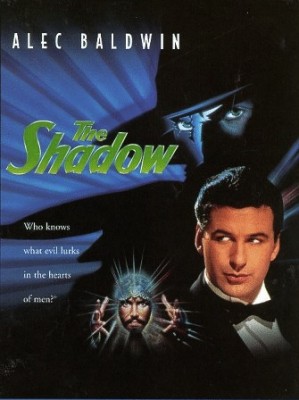
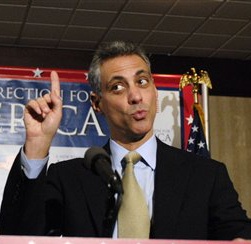
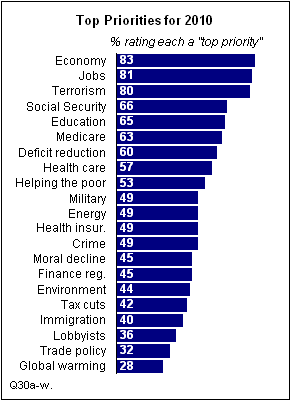 Terrorism is third, with the Christmas airline bombing attempt fresh in people’s minds. The next three are interesting with possible drivers:: social security {decimated retirement plans and obliterated pensions}, education {
Terrorism is third, with the Christmas airline bombing attempt fresh in people’s minds. The next three are interesting with possible drivers:: social security {decimated retirement plans and obliterated pensions}, education {